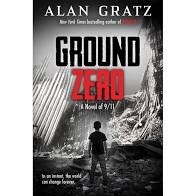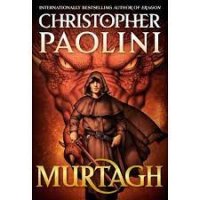Brandon Chavez punched Stuart Pendleton in the nose and got suspended from school. That's why he is with his father, Leo Chavez, climbing the North Tower in New York City to the floor where Leo has his job at the Windows on the World restaurant. Brandon did the punching because he wanted to help his friend get back some "claws" he brought to school and lost. Brandon still wants to get those claws back for his buddy so he slips away from his dad's work and goes downstairs to the store where he can buy some new claws. The date is September 11, 2001.
That's where Brandon is when life changes in an instant. That's where Brandon is when American Airlines Flight 11 slams into the North Tower leaving Brandon's dad and all of his co-workers stranded and trapped on the floor above the crash area. There is no way down for them. For Brandon there is no way back up. Now there is just trying to find a way down and out of the terrifying wreckage.
Across the globe on September 11, 2019, 18 years later Reshmina is wrestling with her twin brother, Pashoon, when suddenly a battle erupts in her village. All around her there is gunfire and confusion. The Taliban and the Americans are fighting each other. Reshmina hates the American soldiers because it was their drone that killed her older sister on her wedding day. But when Reshmina finds an American soldier near her home, she rescues him.
In parallel stories we follow Brandon as he struggles to find his way out of the North Tower with the bodies flying down into the streets, the body parts piled up in the lobby, and the fine white ash covering everyone and everything. We follow Reshmina as she realizes her kindness to the American soldier has brought danger to her village. If the Taliban learns they are harboring an American soldier, they will punish everyone in the village. But who would tell the Taliban? Who would put the lives of the entire village in danger?
How did the American soldiers come to be fighting in Afghanistan? How did the planes come to crash into the twin towers in New York City?
These two stories give the two sides of the experience: one in New York City and one in a small village in Afghanistan. Where are the good guys? Who are the bad guys?
American history, the history of Afghanistan, come down to the personal level, the personal terror and loss, as the war goes on. What have we learned? How do can we help other countries when their governments are failing the people?
An important, visceral story where time stands still. We are there. We feel again the fear, the rage, the confusion. A valuable lesson for our young who weren't there to live through September 11, 2001, but who need to understand what the country went through, what we lost, how we came together as a people. A valuable lesson about what we can do for other countries, how we help and how we harm.
Thank you Alan Gratz for putting the pieces together for us here. Thank you for revisiting your own memories and your own trauma to write this insightful visit to an infamous day.
Recommended by: Barb Langridge, abookandahug.com
*************
The instant #1 New York Times bestseller.
In time for the twentieth anniversary of 9/11, master storyteller Alan Gratz (Refugee) delivers a pulse-pounding and unforgettable take on history and hope, revenge and fear -- and the stunning links between the past and present.
September 11, 2001, New York City: Brandon is visiting his dad at work, on the 107th floor of the World Trade Center. Out of nowhere, an airplane slams into the tower, creating a fiery nightmare of terror and confusion. And Brandon is in the middle of it all. Can he survive -- and escape?
September 11, 2019, Afghanistan: Reshmina has grown up in the shadow of war, but she dreams of peace and progress. When a battle erupts in her village, Reshmina stumbles upon a wounded American soldier named Taz. Should she help Taz -- and put herself and her family in mortal danger?
Two kids. One devastating day. Nothing will ever be the same.---from the publisher
336 pages 978-1338245752 Ages 9-12
Keywords: historical fiction, 9/11, disaster, terrorists, American history, Middle East, 9 year old, 10 year old, 11 year old, 12 year old
*************
“Come you masters of war
You that build the big guns
You that build the death planes
You that build all the bombs
You that hide behind walls
You that hide behind desks
I just want you to know
I can see through your masks”
-- Bob Dylan, “Masters of War” (1963)
NYC, 9/11/2001
“Brandon stood on the broken edge of the World Trade Center, looking straight out into the bright blue September sky. Strong winds whipped his hair around his face, and burning papers fluttered down from somewhere above him. Exposed electrical wires sparked in the sheared-off walls.
Brandon backed up against the stairwell door, his breath hitching in his throat. To his left and right, what was once an interior wall was now the outside wall of the North Tower. Below him, the Brooklyn Bridge stretched across the East River, as tiny as a model train set. He was almost a thousand feet in the air. But this time, there was no window between him and the open sky.
The wet napkin Brandon had tied around his face whipped away into the sky. One long stride and he would join it, falling forever and ever and ever.”
The prior day, nine-year-old Brandon was suspended for punching a bully in the nose. His mother died when he was young, and there’s nobody else around so, on 9/11, Brandon accompanies his father to work--at the restaurant on the top floor of the North Tower of the World Trade Center. A little while later, he leaves the restaurant to go check out a store downstairs near street level. But he only gets a few floors down. He’s in a crowded elevator when the first plane hits the Tower. Brandon and the other passengers manage to escape the elevator just before it plummets to the bottom of the shaft. Passengers in other elevators will not be as fortunate.
Afghanistan, 2019
“‘Nnnnnnnn,’ someone groaned.
Reshmina froze and looked around for the source of the sound. A few meters away, lying on his stomach among dried leaves and dirt, was an American soldier. His face was charred black like a scorched pot, and there were dark, wet spots on his uniform. Blood, Reshmina realized. He must have been injured in the battle.
The soldier groaned again and dragged himself forward. Where was he going? He twisted his head this way and that, as though he was looking for something, but there were only scrub trees as far as Reshmina could see.
The soldier’s head turned toward Reshmina, and she held her breath--but his eyes swept past her like he hadn’t seen her.
He’s lost his eyesight, Reshmina realized. The black marks on his face--he had been wounded, and couldn’t see. If someone didn’t help him, he would die out here in these woods. Or the Taliban would find him, and his death would be far more painful.
Reshmina frowned. Why should she care? The Americans had killed her sister, after all. Pashtunwali, the way of the Pashtun people, said it was right and just to seek revenge against someone who had done you wrong. In Pashto, that revenge was called badal, and it never ran out. Reshmina could wait a dozen years--a thousand--and still take revenge on someone who had wronged her.
Why not just slip away then and let this man die?
Reshmina flipped her notebook closed to leave, but she fumbled it. Her notebook hit the ground with a flump, and the soldier’s head turned in her direction again.
‘Is someone there?’ he asked in English. ‘Hello? I can’t see, and my ears are ringing. I’m hurt. Hello? Can you help me? Please?’”
Nearly two decades post-9/11, Reshmina is an eleven-year-old living through war in Afghanistan. She’s been learning English at school. Unable to come in physical contact with that blinded American soldier, because of cultural and religious dictates, she talks non-stop, reciting English phrases she is learning, so he can follow her voice to her family’s little home in the mountains. Hopefully, someone there can save him.
But her twin brother Pasoon is furious. He leaves home to let the Taliban know about the American. He’s been longing to be part of the Taliban, himself.
“There’s a chance peace will come
In your life, please buy one
--Melanie (1970)
Yes, we’re approaching the twentieth anniversary of 9/11. I can still recall waking up, seeing the news online, and concluding that my old adolescent dreams of peace in my lifetime were finally and thoroughly eradicated. Posting John Lennon lyrics to discussion boards, urging calm instead of revenge, I felt like a pebble on the beach under a tidal wave as I received rumbling, rabid responses. Demands rained down for retaliation against all enemies, real and perceived. The enemies list included those of us who didn’t support war as an appropriate response.
GROUND ZERO is a powerful piece of historical fiction. I read it all day and into the late night, unable to stop. Then I mourned because I’d reached the last page. Author Alan Gratz is a master of cliff-hanging chapter endings. Since the chapters alternate between the action at the World Trade Center in 2001 and the events in Afghanistan, 18 years later, those cliffhangers make for a spectacularly breathtaking read.
The author slips in numerous bits of valuable background information. For instance, we learn that the Taliban originally came from Saudi Arabia and Pakistan, and that the Taliban grows opium poppies--the raw material for heroin--in order to make money for buying expensive weaponry. We also learn that there have been a long list of invaders coming through over the past two thousand-plus years.
Some scenes, both in the 9/11 chapters and the contemporary Afghanistan story, are downright scary and gory. Utterly heartbreaking. As it should be. Thus, I’m leery of handing this one to a child younger than ten unless I were the parent making that decision.
While the main characters in the story are young, I would absolutely book talk this one to teens. For one thing, it’s a perfect book for the American Library Association’s Quick Picks for Reluctant Readers list. Talk about exciting and high interest!
And there’s a section near the end that makes me a real advocate for also using GROUND ZERO in middle- and high-school classrooms. It does a great job of framing questions of how and why we got into Afghanistan and when it should be over for the US. A spirited discussion on these topics takes place between Reshmina and the injured American, and the debate could well catch the interest of and really impact an adolescent’s thinking about their country’s history and future.
Recommended by: Richie Partington, MLIS, California USA
See more of Richie's Picks <https://richiespicks.com/> https://richiespicks.pbworks.co






